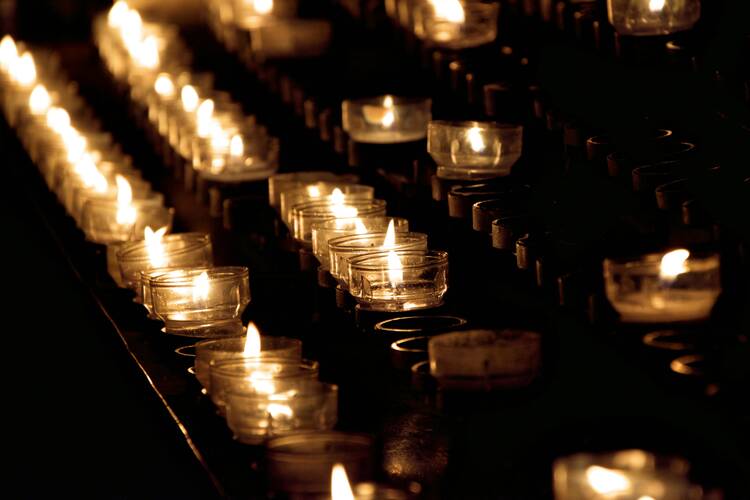A Reflection for Memorial of St. Augustine Zhao Rong, priest, and companions, martyrs
Find today’s readings here.
“Amen, amen, I say to you,
unless a grain of wheat falls to the ground and dies,
it remains just a grain of wheat;
but if it dies, it produces much fruit.
Whoever loves his life loses it,
and whoever hates his life in this world
will preserve it for eternal life.” Jn 12:24-25
“The blood of the martyrs is the seed of the church” is one of those lines all too easy for us folks who will most likely remain non-martyrs to say. We often mutter it when we encounter some of the fierce news still emerging from the geographic margins of the world where Christianity remains an at-times life-threatening identity.
Today the church celebrates the Memorial of St. Augustine Zhao Rong and companions and martyrs. The memorial is the reminder that the church persecuted has long been a facet of Christian life and will sadly continue to be in nations like Pakistan and China where Christianity is perceived as a threat to the wider culture or its political mythology.
St. Augustine Zhao Rong and the faithful remembered on this day were among scores of Christians killed because of their faith in China between 1648 and 1930. They were both Chinese- and foreign-born, laypeople and religious men and women, clerics and children and elderly parishioners who accepted and spread the faith and died for it. St. Augustine Zhao Rong, in his previous life a soldier, was martyred in 1815.
Many of the Christians remembered today lost their lives during the Boxer Rebellion at the turn of the 20th Century. Among them were four Jesuit missionaries. Two of them were martyred together with the community they served, killed in a village church where they had taken refuge together in prayer, hoping to escape the violence that would engulf them.
A Vatican document on the memorial celebration sought to find meaning in their tragic fates:
The fact that this considerable number of Chinese lay faithful offered their lives for Christ together with the missionaries who had proclaimed the Gospel to them and had been so devoted to them, is evidence of the depth of the link that faith in Christ establishes. It gathers into a single family people of various races and cultures, strongly uniting them not for political motives but in virtue of a religion that preaches love, brotherhood, peace and justice.
The sacrifice of these martyrs is a poignant reminder of the long and sometimes sorrowful path the faithful have followed over centuries in China. It is a path the church still follows—at times with the same suffering and sacrifice and courage.
The Gospel today includes some wonderful lines of scripture that put me in mind of another martyr, a man who struggled to live his faith in a dangerous time, who had to overcome his very natural fears to finally become an outspoken defender of human rights in El Salvador.
“Jesus said to the disciples…unless a grain of wheat falls to the ground and dies, it remains just a grain of wheat; but if it dies, it produces much fruit.”
It was this scripture that St. Óscar Romero contemplated during Mass at a hospital chapel where he was martyred on March 24, 1980. He used that Gospel to urge his people to take heart and to take part, like him, in confronting the injustices and brutality of their time and place.
“This is the hope that inspires us Christians,” he told the people gathered for a memorial Mass that would be his final celebration. “We know that every effort to better a society, especially one that is so enmeshed in injustice and in sin, is an effort that God blesses, that God desires, that God demands of us.”
“This holy Mass, the Eucharist, is itself an act of faith,” he said. “With Christian faith we know that at this moment the wheaten host is changed into the body of the Lord who offered himself for the world's redemption and in that chalice the wine is transformed into the blood that was the price of salvation. May this body immolated and this blood sacrificed for humans nourish us also, so that we may give our body and our blood to suffering and to pain—like Christ, not for self, but to impart notions of justice and peace to our people.”
Romero did not seek out his martyrdom; he loved life and he loved his people and he wanted to remain with them. But he was at peace, confident in the worth of the sacrifice he would be called on to make, confident in that Christian hope that perhaps was a final consolation to all these holy men and women we remember today.








